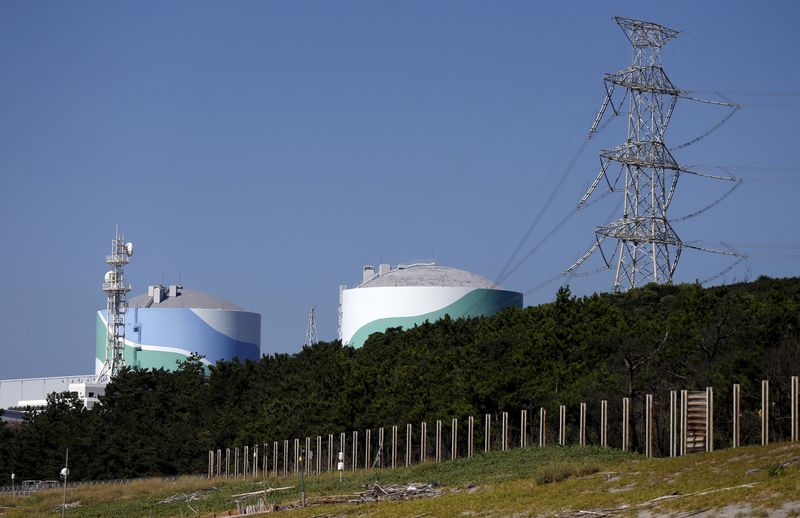By Yuka Obayashi
TOKYO (Reuters) - Japan's Kyushu Electric Power will wait until after the United States resumes issuing export licences for new liquefied natural gas (LNG) projects before deciding on whether to invest in the Lake Charles project, an executive said.
U.S. President Joe Biden froze approvals for LNG exports from new projects late last month to big markets in Europe and Asia in order to take a "hard look" at environmental and economic impacts of the booming business.
The United States became the largest LNG exporter last year, and its exports are expected to double by the end of the decade.
The Lousiana-based Lake Charles project of Energy Transfer (NYSE:ET) was among those affected projects. Before Biden's freeze, Kyushu Electric had said it was considering investing in the project, among others, to secure LNG supplies.
Asked about whether Kyushu would hold off on the decision until the U.S. pause is lifted, Executive Officer Takashi Mitsuyoshi told Reuters it would likely do so.
"We were a bit surprised by the decision," he said. "I assume we won't be able to make a decision until then."
Kyushu remained in talks with Energy Transfer, he added, including on signing a long-term purchase agreement.
Japan is the world's second-biggest LNG importer after China. Given the difficulty to start new LNG projects amid the global push toward decarbonisation, Mitsuyoshi said the company was now seeking to secure LNG supplies by buying stakes into development projects, rather than just relying on imports through long-term contracts.
"While Europe and China are actively securing resources, Japan's presence in the resource business is declining," Mitsuyoshi said.
"Like global oil majors, Japanese trading companies are gradually moving away from the resource business, and with environmental issues making it difficult to initiate new LNG projects, I don't think we can achieve the same level of stable procurement as before if we solely remain in a buyer position."
The company is in talks with state-owned Japan Bank For International Cooperation (JBIC) and Japan Organization for Metals and Energy Security (JOGMEC) for financial support for the possible U.S. deal, but no final decision on the investment or purchase agreement has been made, Mitsuyoshi added.
The Lake Charles project is only one of the options for the company to secure supplies as some of its contracts, including Donggi-Senoro in Indonesia and Sakhalin-2 in Russia, are expiring in 2027-2032.
Mitsuyoshi declined to comment on whether it plans to renew the Sakhalin-2 contract.
The utility has reduced its reliance on LNG, thanks to restarts of four nuclear power reactors and the utilisation of more renewable energy in Kyushu, Japan's southwestern main island.
After peaking at nearly 6 million metric tons in the aftermath of the 2011 Fukushima nuclear disaster, Kyushu Electric's annual LNG demand has fallen to under 2 million tons in the fiscal year ending March.
To better manage supply, the utility has started using two LNG storage tanks in Indonesia and has formed a new trading unit to quickly respond to market changes.
"We want to grow trading flow to reinforce hedging and other functions," Mitsuyoshi said.
